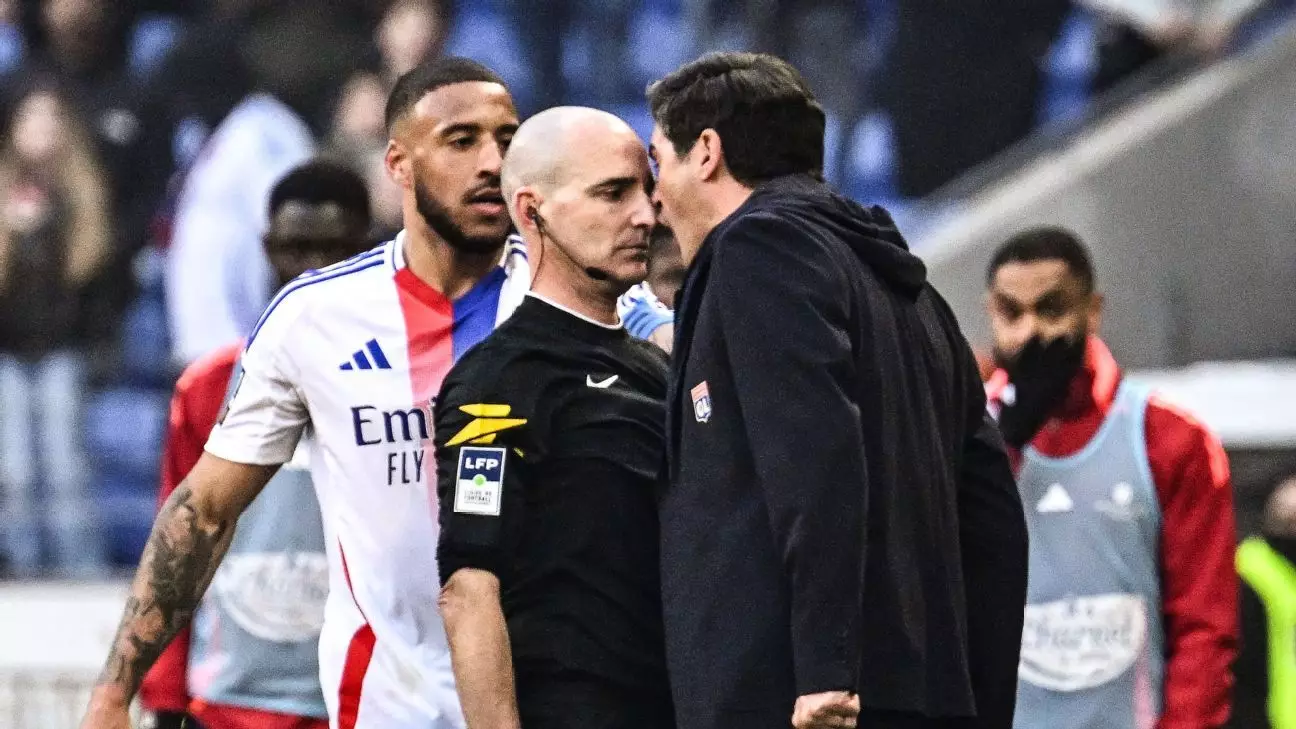In the world of sports, emotions run high, particularly in competitive environments like professional football. However, when those emotions cross the line into confrontations, as experienced by Lyon’s manager Paulo Fonseca during a recent match against Brest, they can lead to severe ramifications. Fonseca’s actions during the game—a physical confrontation with the referee—have unearthed a broader discussion about respect for match officials in French football. The incident, which escalated after a contentious decision late in the game, was not just about one man’s outburst; it encapsulated a growing frustration among managers, players, and fans regarding officiating standards in Ligue 1.
Paulo Fonseca’s behavior on the pitch exemplifies how intense passion can morph into unacceptable conduct. Following a potential penalty call for Brest, he reacted vehemently, which not only led to his red card but also showcased an alarming disregard for the referee’s authority. When Fonseca aggressively confronted referee Benoît Millot, getting so close that his demeanor fused into aggression, he crossed a line. This incident serves as a distressing reminder of how high-pressure situations can lead to irrational actions—actions that could now cost Fonseca a seven-month suspension. Even in the wake of realizing his misstep and offering an apology, the damage was done.
With Fonseca’s unfortunate display, one must reflect on the broader implications of leadership in sports. Coaches are often seen as role models, and their behavior sets a standard for players and fans alike. An outburst of such magnitude can trickle down through the ranks, encouraging a culture where disrespect towards officials is tolerated or even expected. Fonseca’s confrontation not only tarnishes his reputation but can also influence how his team behaves towards referees in future matches.
This incident isn’t occurring in isolation. Following claims of corruption directed at French referees from Marseille’s president, Pablo Longoria, it raises questions about the systemic issues that exist within French football. Referees operate under immense scrutiny and pressure, yet many feel their authority is constantly undermined. The incident involving Fonseca dovetails into a culture of skepticism surrounding officiating; yet, escalating tensions rarely provide the solutions necessary to resolve such conflicts.
As discussions around the treatment of officials and the integrity of football continue, it’s essential that leagues, clubs, and managerial staff take accountable steps toward cultivating a more respectful environment. This could range from implementing stricter penalties for misconduct to promoting positive dialogues about officiating standards and allowing for better communication between managers and referees. Only through a concerted effort can a more harmonious culture be fostered, enabling both players and officials to fulfill their roles without the threat of intimidation or disrespect hanging over games.
Paulo Fonseca’s actions may serve as a cautionary tale in the world of football. It highlights the critical importance of managing emotions effectively within the high-stakes context of professional sports and the urgent need for a cultural shift regarding respect toward officials. The passion that drives football must be balanced with accountability to ensure it remains the beautiful game it is meant to be.

